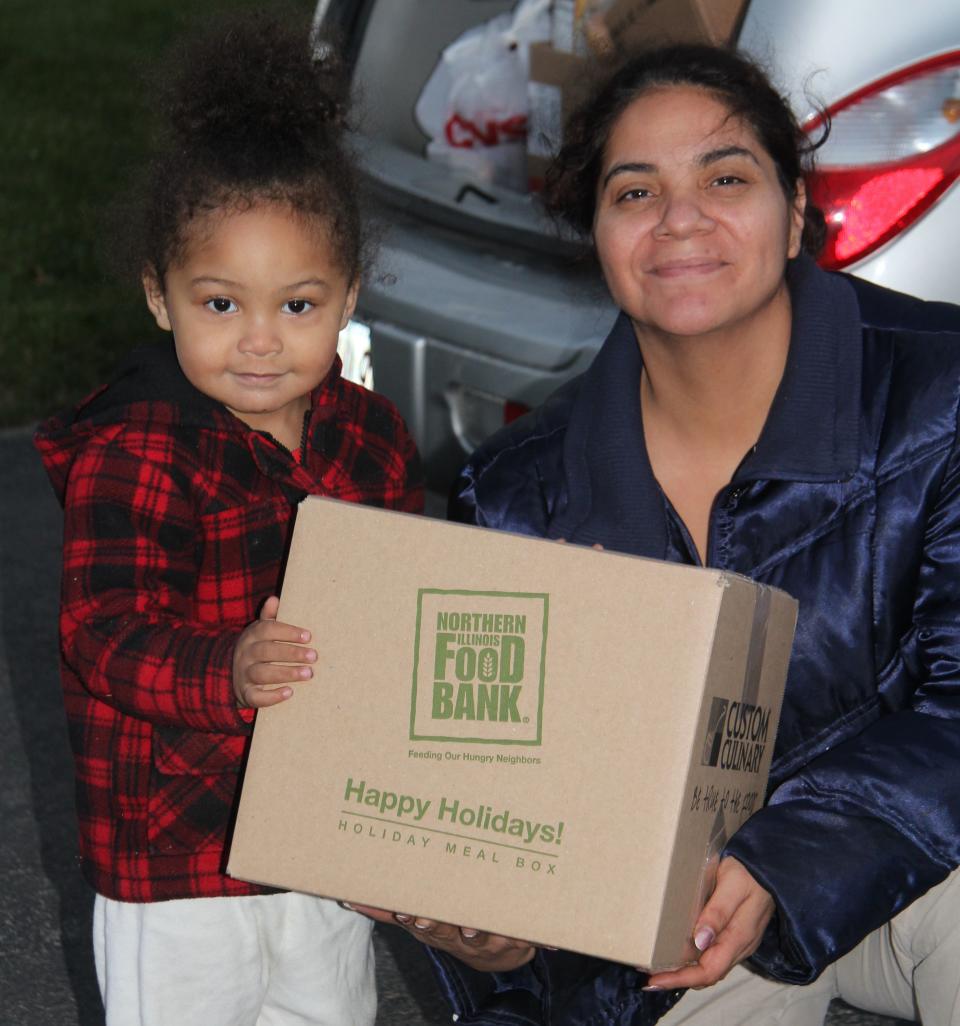'I Feel Like I'm Failing Them': How Low-Income Parents Struggle Over The Holidays

Jasmine, 32, is looking forward to Christmas, a rare opportunity to spend an entire day with her twin 8-year-old boys. But she’s also anxious ― anxious that she’ll disappoint them because she can’t afford to buy them the few gifts they asked for this holiday season.
“Some days I feel like I’m failing them,” Jasmine, a single mom who works two jobs, told HuffPost. “It almost makes me feel like I’m not trying as hard as I think I am.
The holiday season is in full swing. According to seasonal ads and movie classics, this should be the most joyous, magical time of year, when families exchange nice gifts and enjoy festive meals. But for low-income families and those living paycheck to paycheck, it can be the most stressful time. There are concerns about how to scrape money together to buy gifts and pay for holiday meals. Then there are worries about lost wages for taking time off or child care costs if parents work while the kids are at home. There’s anxiety about the basic expenses, too. When school or day care is closed, that also means children don’t have access to meals they typically get during the day.
“If you think about low-income families, there are really ongoing financial pressures throughout the year,” said Caroline Ratcliffe, a senior fellow at the Urban Institute, a nonprofit research group. “Those financial pressures can intensify during the holidays,”
For these families, it isn’t about making more sacrifices or working harder. For many of them, there are no more frills left to cut and there are no more hours in the day available.

According to Julie Yurko, CEO of the Northern Illinois Food Bank, 77 percent of the clients who use the organization’s service are part of working families. The Northern Illinois Food Bank is one of 200 Feeding America network food banks.
“It dispels a myth, this preconceived notion that these are not hard-working families and aren’t doing everything they can to provide for themselves,” Yurko said.
Most weeks, Jasmine doesn’t take a single day off. During regular working hours, she’s a phlebotomist at a lab, where she earns about $30,000 a year. At nights and on weekends, she doubles as a liquor ambassador. She educates customers about a particular wine or beer at stores or at sporting events. That earns her about $2,000 more a year. Jasmine makes too much money to qualify for government benefits, but it’s not enough to cover her expenses.
“You need so much of certain things. It costs so much,” Jasmine said. “When you don’t have it, you just don’t have it.”
Many families face the same issue. Even though the unemployment rate has fallen, wages have remained stagnant.
One of the biggest expenses Jasmine struggles with each month is food. Ideally, she’d like to spend about $400. By shopping at multiple stores to get the best deals, and getting some help from a food pantry that works in partnership with the Northern Illinois Food Bank, she’s able to shave that expense in half. The food pantry she visits is run out of her sons’ school and is going to be closed over the holiday.
Not having access to the food pantry was another consideration as Jasmine tried to budget and prepare for Christmas.
Like most parents, Jasmine wants to make her kids feel special over the holidays. According to a recent report from Bankrate, a website that provides financial advice, 54 percent of polled parents said they felt pressure to overspend during the holidays.
Jasmine can’t consider overspending. Instead, she’s being extra resourceful and has to accept that there will be some disappointment.
The twins handed her a pretty reasonable wish list this year. They asked for new shoes and clothes. They each wanted a crucifix necklace.
She was able to find the necklaces at Marshall’s for $15.99. The rest of the requests will have to wait.
To save up for gifts and Christmas dinner, Jasmine didn’t buy a single thing for two weeks. Instead of paper towels, they used hand towels. Jasmine made meals with only what was available in the cupboards ― a lot of canned goods and pasta. She drove just as far as she had to go and not a mile more to save on gas. She’s been stretching her toiletries and doing larger loads of laundry so she doesn’t waste detergent.

Rationing and making hard decisions is common among families who are struggling to get by, Yurko said.
Clients who visit the food pantry will stock up on oatmeal and peanut butter, because those are filling foods. They water down juices to make them last longer. Parents will often go without food so that their children won’t go hungry. They’ll pay half an electric bill one month to have some extra money to work with.
“They will make tough choices as they’re stretching,” Yurko said. “They’re buying what’s most important at this moment.”
But the holidays are just a symptom of a bigger issue. Most struggling families don’t have any sort of savings to cover something more dire, like a major medical issue. About a quarter of families have no non-retirement savings, said Ratcliffe. She added that having just $250 to $750 set aside for emergencies could help protect families from financial ruin because once an unexpected bill arises, families can fall prey to predatory loans that can hurl them into a cycle of debt.
As for Jasmine, she remains upbeat and is as honest as she can be with her young sons about their finances. When they ask for food or gifts she can’t afford, she’s straightforward with them.
“I tell them we have to wait until later because I have other responsibilities. Every now and again, they will cry or get a little frustrated. What can I do?”
Love HuffPost? Become a founding member of HuffPost Plus today.
This article originally appeared on HuffPost.
